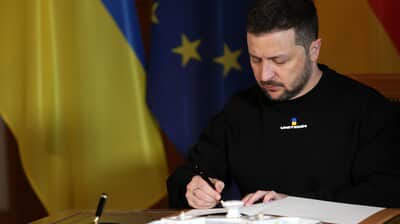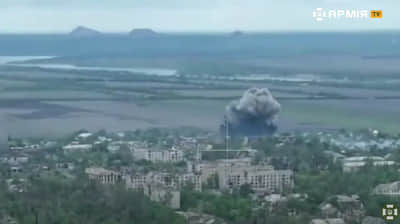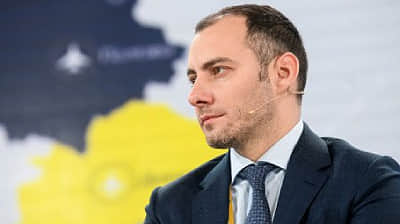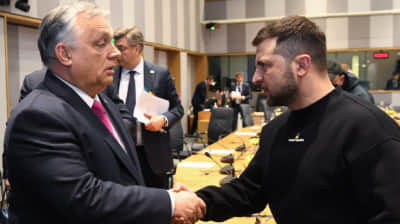ISW: Kremlin no longer offers pardons to convict recruits going to war
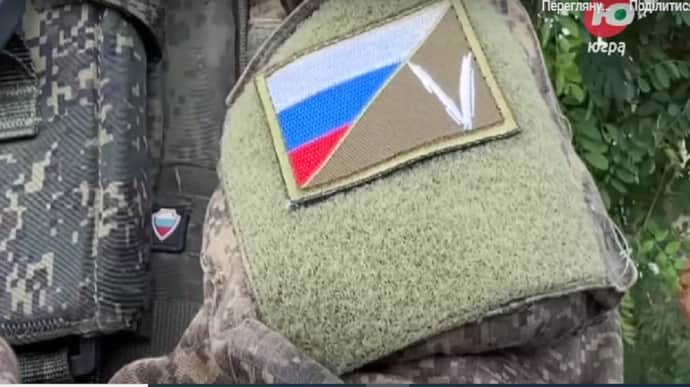
The Kremlin no longer offers pardons to newly convicted conscripts and significantly changes the conditions of their service.
Source: Institute for the Study of War (ISW); BBC; Vazhnye Istorii, a Russian media outlet
Details: It possibly happens due to the reduced number of eligible convicts for recruitment into the Russian Armed Forces.
The BBC reports that Russian officials concluded recruitment for Storm-Z units in August 2023 and began recruiting convicts for Storm-V units based on new contract conditions in September 2023.
Earlier, Russian officials recruited convicts through promises of pardons and six-month contracts, but Storm-V units reportedly do not promise pardons or even conditional early release, continuing contracts with convicts for an indefinite period until the end of the war.
Russian officials likely extended contracts based on President Vladimir Putin's order for partial mobilisation, similar to how Russian military personnel are handled for mobilised personnel.
Officially, Russian military enlistment offices release convict conscripts through a procedure no longer legally equivalent to "conditional early release," indicating that convict conscripts are still legally considered prisoners.
As of October 2023, Russian officials reported a notable decrease in the number of prisoners in Russia, with 266,000 individuals — a reduction by 54,000 compared to the number reported in January 2023. Losses of conscripts due to strenuous assaults in Ukraine and the relatively short terms of their contracts may have prompted the Kremlin to introduce more stringent service conditions to retain more conscripts on the front lines in Ukraine. The contract terms in the new Storm-V units are less attractive and may hinder the recruitment of convicts, although Russian officials are compelling convicts to sign contracts.
On 25 January, the Russian opposition publication Vazhnye Istorii (Important Stories) reported that the personnel of Storm-Z sent a letter to Putin requesting a resolution to the issue of missing promised payments, injury compensations, and documents for expunging criminal records for personnel.
In response, the Russian military prosecutor's office wrote to a Storm-Z fighter, stating that Putin's decree promising one-time payments in case of injury or death does not apply to Storm-Z fighters.
To quote the ISW’s Key Takeaways for 25 January:
- Ukrainian and Russian authorities opened criminal investigations into the 24 January Russian Il-76 military transport aircraft crash in Belgorod Oblast.
- Russian forces conducted a series of missile and drone strikes against Ukraine on the night of 24 to 25 January.
- The Ukrainian Security Service (SBU) reportedly conducted a successful drone strike on a Rosneft oil refinery in Tuapse, Krasnodar Krai on the night of 24 to 25 January.
- Russian forces are reportedly increasing their use of chemical weapons in Ukraine in continued apparent violations of the Chemical Weapons Convention, to which Russia is party.
- German Chancellor Olaf Scholz stated that Russia’s war in Ukraine is "directed against the very existence of Ukraine as a sovereign state."
- Russian authorities issued prison sentences in a number of high-profile cases on 25 January, including that of imprisoned Russian ultranationalist and former officer Igor Girkin.
- The Kremlin is reportedly no longer offering pardons to convict recruits and is significantly changing the terms of their service, likely in response to the reduction of the pool of convicts suitable for recruitment into Russian force generation efforts.
- A Russian insider source claimed that the Russian military command recently replaced the Deputy Commander of the Southern Military District (SMD) and appointed a new SMD Chief of Staff, although ISW cannot confirm this claim.
- Russian forces recently made confirmed advances near Avdiivka amid continued positional engagements along the entire line of contact on 25 January.
- Bloomberg reported on 24 January that labour shortages in Russia have increased wages in civilian sectors enough to compete with relatively lucrative military salaries, likely making military service even less appealing to Russian citizens.
- Crimean occupation head Sergei Aksyonov signed a decree on 25 January that introduces a "special regime" for entry and exit between occupied Crimea and occupied Kherson Oblast reportedly in an effort to "localise threats to the security of the population and military and other facilities" in occupied Crimea.
Support UP or become our patron!


